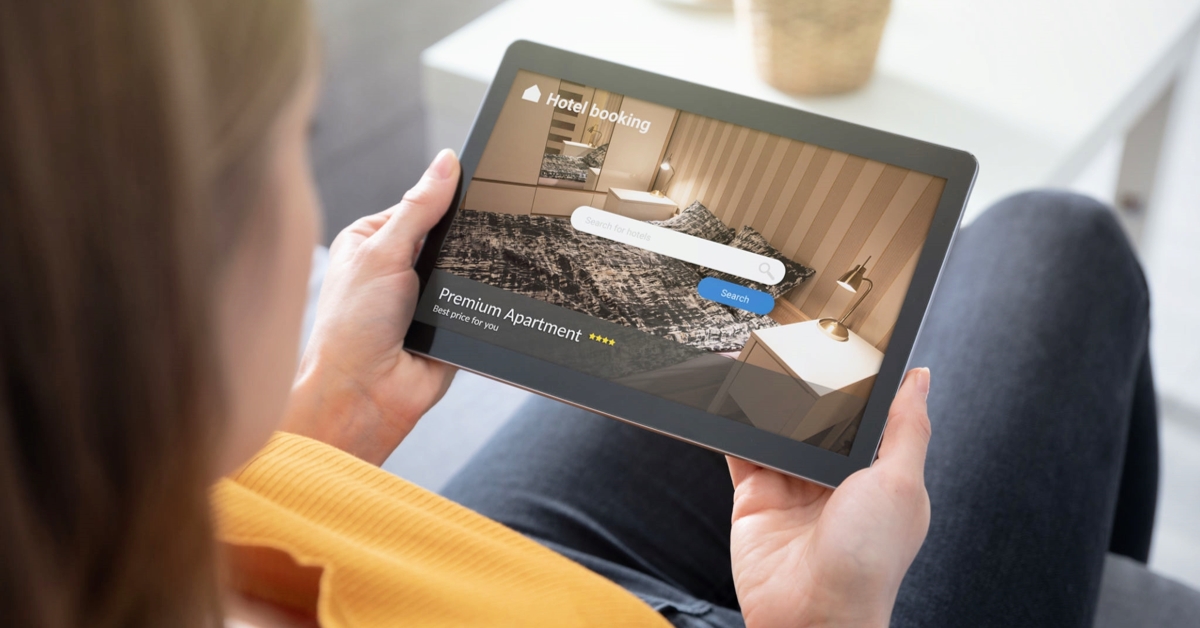The shift towards remote work has ushered in a new era of travellers: digital nomads, individuals who blend work with travel and seek accommodations that cater to their unique lifestyle. Traditional vacation rentals, while comfortable for short stays, often fall short of meeting the needs of these modern wanderers. As a property owner, adapting your space to suit the requirements of digital nomads can open up a lucrative market segment that is rapidly growing.
Understanding the Digital Nomad Lifestyle
A digital nomad is someone who leverages technology to work remotely, often travelling to different locations. Unlike typical tourists or business travellers, digital nomads look for places to stay that offer more than just basic amenities. They need spaces where they can work effectively and live comfortably for extended periods.
This lifestyle is characterised by flexibility, connectivity, and a balance between work and exploration. Digital nomads often seek experiences in different cultures while maintaining a productive work environment. Their accommodation choices are influenced by factors like reliable internet connectivity, conducive workspaces, and a comfortable living environment that allows for both productivity and relaxation.
Understanding these preferences is key to transforming your rental into an ideal space for digital nomads. Recognizing that their needs differ significantly from other travellers is the first step in catering to this unique market.
digital nomad lifestyle and preferences, the “2021 Digital Nomads Report” by MBO Partners could be a valuable resource. This report provides detailed insights into the characteristics, preferences, and growth trends of the digital nomad population, which has expanded significantly over recent years. Such data can enhance the understanding of digital nomads’ needs, helping to tailor rental properties to better suit this growing segment of remote workers
Key Features of Digital Nomad Rentals
To attract digital nomads, certain features are non-negotiable. The most crucial is high-speed, reliable internet. Nomads depend on the internet for their work, so a fast and uninterrupted connection is essential. Equally important is a dedicated workspace. This doesn’t necessarily mean a full home office, but a comfortable, quiet area with a desk and ergonomic chair can make a significant difference.
Other desirable features include a fully equipped kitchen, as many digital nomads prefer to cook their own meals, especially during longer stays. A comfortable bed, ample storage space, and modern appliances also add to the appeal. Including additional monitors, printers, or other office equipment can set your rental apart.
Considering the lifestyle of a digital nomad, properties that offer flexibility in terms of booking durations and have utilities included in the rent are more attractive. This demographic often looks for hassle-free living arrangements where they can settle in quickly and start working without worrying about setting up utilities or dealing with multiple bills.
Designing Digital Nomad Places to Stay
When designing a space for digital nomads, think about multifunctionality. The layout should allow for a seamless transition between work and leisure. An open-plan living area that incorporates a workspace can be ideal. Ensure that this space is well-lit, preferably with natural light, and is away from noise and distractions.
The workspace should be ergonomic. Investing in a good quality chair, a desk at the right height, and additional accessories like keyboard trays or monitor stands can make the space more comfortable for long working hours. Additionally, having a few different areas where one can work, such as a balcony with a view or a cosy corner with a coffee table, can provide a change of scenery that boosts creativity and productivity.
Decor plays a significant role in making the space welcoming and functional. A minimalistic approach often works best, providing a clutter-free environment that enhances focus. However, adding a few local or artistic touches can give the space character and make the stay more memorable.
Offering the Ideal Digital Nomad Accommodation
Creating the perfect accommodation for digital nomads goes beyond providing a fast internet connection and a comfortable workspace. It’s about understanding and catering to their unique lifestyle. Ergonomic furniture, such as adjustable chairs and desks, can significantly improve comfort during long work hours. Including tech-friendly amenities like extra monitors, high-quality speakers, and ample charging stations can also enhance productivity.
Another aspect to consider is the provision of a conducive work environment. This means ensuring the rental is in a quiet area or is well-insulated against noise. Adjustable lighting, both natural and artificial, also plays a crucial role in creating an environment suitable for both work and relaxation.
Including leisure amenities like a fitness area, a cosy reading nook, or a small garden can also appeal to nomads looking to balance work with personal well-being. These features help in making the rental not just a place to stay, but a comprehensive living and working solution.

Location and Accessibility in Digital Nomad Apartments
Location is a critical factor in the appeal of digital nomad accommodations. Properties located near city centres, co-working spaces, cafes, and local attractions are typically more desirable. Easy access to public transportation, grocery stores, and essential services is also important.
However, being situated in a serene and scenic location can also be appealing, especially for those looking to escape the hustle and bustle of city life. Proximity to natural attractions like beaches, mountains, or parks can be a significant draw.
It’s about striking the right balance between connectivity to urban amenities and the tranquillity of a more secluded setting. Understanding your target market and their preferences in terms of location and accessibility is key to making your rental property appealing to a wide range of digital nomads.
Building Community in Digital Nomad Housing
Many digital nomads are not just looking for a place to stay; they are seeking a community. Creating a sense of community in your rental can be a major draw. This could involve designing communal spaces where guests can interact, share ideas, and network.
Hosting regular events, workshops, or social gatherings can also encourage community building. Providing a bulletin board or a digital platform for guests to share information, organise meetups, or offer collaboration opportunities can foster a sense of belonging and connection.
In properties with multiple rental units, consider creating shared workspaces or lounges where guests can work in a more social environment. Such initiatives not only enhance the appeal of your property but also help in building a loyal customer base that is more likely to return or recommend your property to others.
Marketing Your Rental to Digital Nomads
Effectively marketing your rental to digital nomads requires a targeted approach. Highlighting the features that cater specifically to their needs in your marketing materials is crucial. This includes showcasing your high-speed internet, workspaces, ergonomic furniture, and any additional amenities that support a digital nomad lifestyle.
Utilising online platforms frequented by digital nomads is key. Listing your property on websites and forums dedicated to remote workers and digital nomads can increase visibility. Engaging in social media platforms, particularly those where digital nomads gather, such as specific Facebook groups or Instagram, can also be effective. Tailoring your content to showcase the lifestyle your property offers, including highlighting local attractions and amenities, can attract this audience.
Using testimonials and reviews from previous digital nomad guests can add credibility and appeal. Sharing their experiences and how your rental met their needs can be a powerful tool in convincing potential guests that your property is right for them.
Setting Up Competitive Pricing and Flexible Terms
Pricing your rental competitively while catering to the unique needs of digital nomads is vital. Consider the length of stay that digital nomads typically prefer and set your pricing accordingly. Offering discounts for longer stays can attract nomads planning to stay in one location for an extended period.
Flexibility in booking terms is also important. Digital nomads often need the flexibility to extend or shorten their stay, sometimes at short notice. Offering easy modifications to booking durations without hefty penalties can make your property more appealing.
Implementing a transparent pricing model that includes all necessary utilities and services, such as high-speed internet, cleaning services, and access to any communal areas or amenities, can also be attractive. This simplifies the booking process for digital nomads and ensures there are no hidden costs.
Feedback and Continuous Improvement
Continuously improving your rental offering is essential in staying relevant and appealing to digital nomads. Encourage feedback from your guests, asking specifically about what they liked and what could be improved. This feedback is invaluable in understanding the needs of your target market and making necessary adjustments.
Stay updated with trends in remote work and the digital nomad lifestyle to ensure your rental continues to meet their evolving needs. Regular updates to your property, whether in terms of technology, furniture, or amenities, can keep your rental competitive and desirable.
Conclusion
Catering to the rising market of digital nomads offers a promising opportunity for rental property owners. By providing the right amenities, creating a supportive community, strategically marketing your property, offering competitive pricing, and continuously seeking feedback for improvement, you can make your rental a preferred choice for digital nomads.
Ready to tap into the digital nomad market? Start by evaluating and enhancing your rental today, and join the growing network of properties that cater to the dynamic lifestyle of remote workers around the world.




























